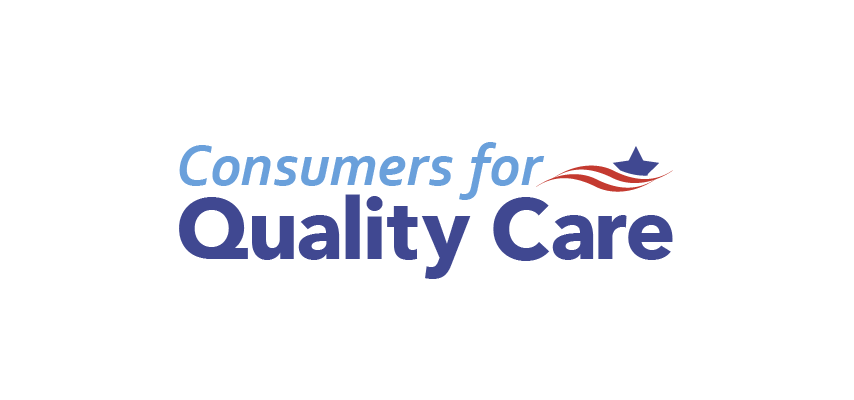Consumers for Quality Care Uncovers Hidden Health Care Horrors During Health Literacy Month
By Consumers For Quality Care, on October 29, 2019

Urges consumers to be on the lookout as open enrollment approaches
WASHINGTON – October is Health Literacy Month. As Americans prepare for open enrollment next month, Consumers for Quality Care (CQC) is working to educate consumers about the health care horrors they need to be on the lookout for when shopping for an insurance plan.
Earlier this month, CQC sponsored a survey conducted by Morning Consult to find out just how well consumers understand what their health insurance covers. What we found is frightening. Only 51% of respondents say they understand very well what their insurance covers for the most common of medical events – a routine doctor visit. That number drops precipitously as we explore other types of insurance uses; only 32% understand very well what their health insurance covers for in-network hospital services. That percentage drops to 22 who understand very well what is covered for out-of-network hospital services or what is covered if they are in a car crash or other type of accident.
“What we have uncovered in this survey is spookier than any haunted house could ever be,” said Jason Resendez, CQC board member and executive director of the LatinosAgainstAlzheimer’s Coalition. “Understanding what your health insurance covers is essential to avoiding major pitfalls that can cost patients money, and making the wrong health care decisions can have serious and long-lasting repercussions for patients and their families. Clearly many don’t make it easy, so it’s up to consumers to educate and empower themselves to make the best decisions they can when it comes to their health care coverage.”
During Health Literacy Month and with open enrollment just around the corner, CQC is educating consumers about how important it is to understand their health insurance plans and policies and procedures to watch out for. Those include:
- Surprise medical bills: Hospital care is the single largest component of national health care spending. We expect that our health care premiums will cover most of our hospital costs, but according to the CQC survey 35% of voters say they or a loved one has received a surprise medical bill.
- Short-term limited-duration insurance plans: STLDI plans are exempt from many Affordable Care Act (ACA) requirements and can exclude coverage for pre-existing conditions, have dollar value limits on covered services, are not required to cover preventive services and have a host of other substantial risks for consumers. Last year, the Trump administration issued a rule expanding the maximum period for which STLDI plans can be offered, causing these barebones plans to proliferate.
- Insurer programs that prevent copay coupons from counting towards patients’ deductibles: With copay adjustment – or accumulator adjustment – programs, insurers no longer allow drug cost sharing coupons to count towards patients’ deductibles or caps on total out-of-pocket costs. For some patients, their coupons run out before the end of the year—leaving them with unexpected amounts they can’t afford to pay when they try to fill a prescription at the pharmacy.
The CQC survey also identified other aspects of health care coverage consumers find frustrating, including:
- Receiving surprise bills somewhat or very frustrating (61%);
- Co-pays and deductibles that keep going up (65%);
- Understanding what is and is not covered (62%);
- Being put in the middle of disputes between their insurer and their health provider (58%);
- Inadequate prescription drug coverage (57%); and
- Not enough in-network doctors and providers (51%).
Strong majorities of respondents support legislative proposals requiring improved transparency from health insurers on what is covered as part of a health policy (84%) and hospitals about which providers are in and out of network at their facility (83%), setting limits on what a patient may be charged for out-of-network treatment at in-network facilities (79%) and preventing hospitals from billing patients for the remaining balance when their insurer refuses to pay for the services (78%). Eighty-four percent of respondents believe their insurer should provide them with clearer information so they do not receive a surprise medical bill, and 83% believe health providers should provide clearer information so they do not receive surprise medical bills.
“Voters are fed up with the lack of transparency and the lack of certainty around costs,” continued Resendez. “The vast majority – 87% – agree that insurance should work like insurance again and actually cover people when they get sick, and they are looking to lawmakers, insurers and hospitals for help.”
Healthcare.gov and the state marketplaces are open for enrollment from Nov. 1 to Dec. 15, 2019. No matter what type of insurance they have, CQC urges consumers to educate themselves and shop to find the best health care plan for themselves and their families. Learn more at www.consumers4qualitycare.org/healthliteracy.
